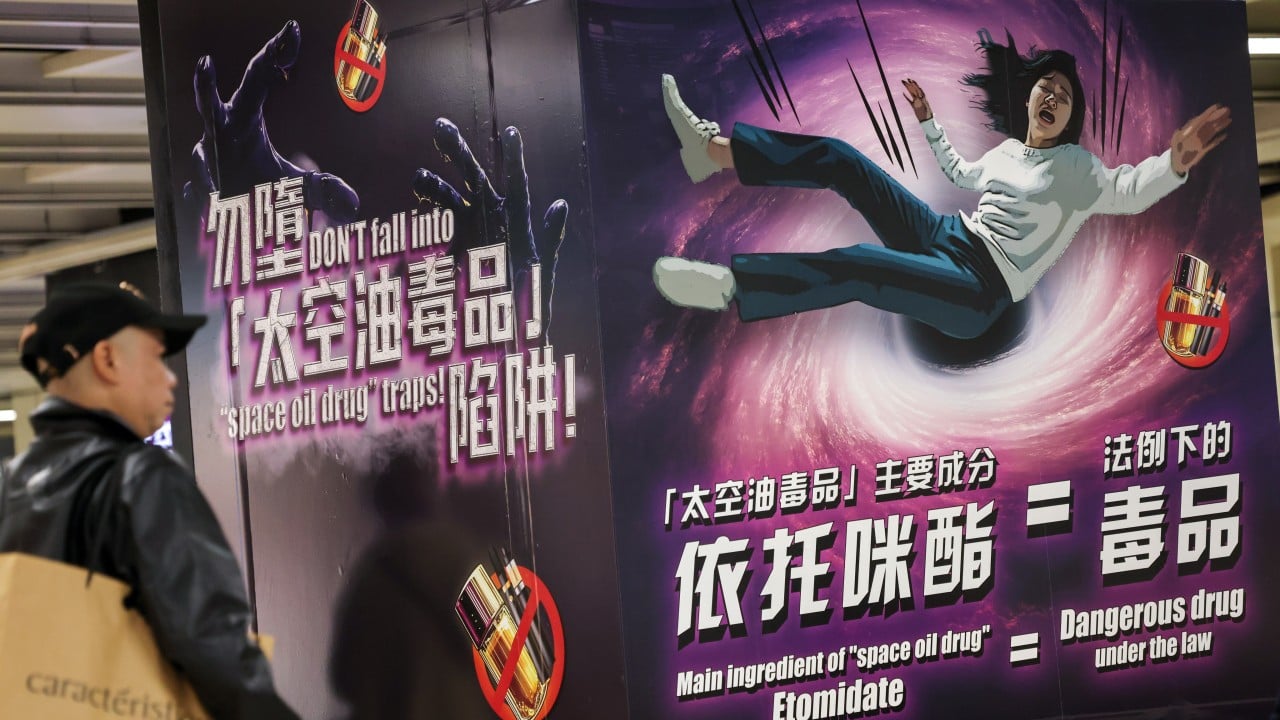Published: 9:00pm, 14 Feb 2025Updated: 9:03pm, 14 Feb 2025
Hong Kong classified several key ingredients used to make the narcotic known as “space oil” in the same category as cocaine on Friday in a bid to combat rising use among teens, as authorities revealed variations of the main anaesthetic used in the vape capsules had been found in 75 cases since last year.
Advertisement
Social workers also said while the legal change covered a variety of chemicals used to make space oil, the tougher approach to the drug risked making some users even more reluctant to seek help and called for greater efforts to tackle the roots of abuse.
After pledging last year to move swiftly to combat the rising popularity of space oil, the government on Friday classified etomidate, previously a Part 1 poison, as a dangerous drug.
Five other substances were also added to the Dangerous Drug Ordinance. Three of the five – metomidate, propoxate and isopropoxate – are chemically related to etomidate, while butonitazene is an opioid and bromazolam a drug with hypnotic, sedative, euphoric and muscle-relaxing effects.
Unauthorised possession or consumption of the listed chemicals is punishable by up to seven years in prison and a maximum fine of HK$1 million (US$128,400). Those caught trafficking them can face up to life in prison and a HK$5 million fine.
Advertisement
Space oil, which has rapidly become one of the most popular recreational drugs in the city, is commonly available in e-cigarette capsules. Drug dealers sometimes also mix etomidate with other illegal narcotics such as cannabis and ketamine and infuse them with flavoured glycerine to form the capsules.

